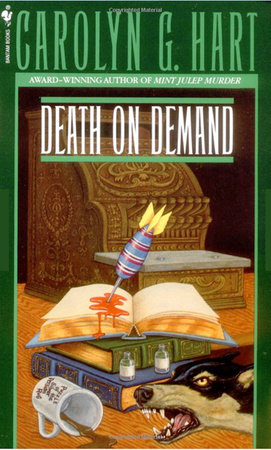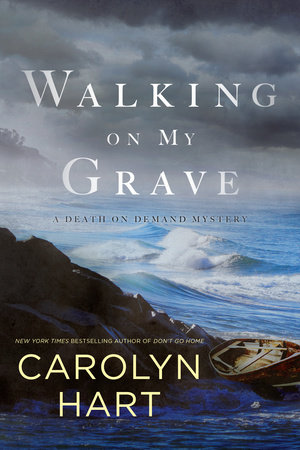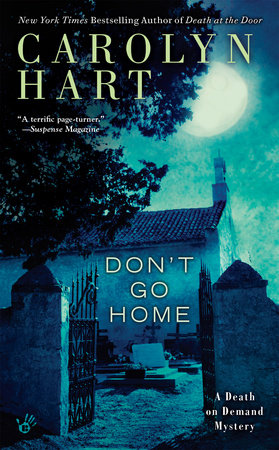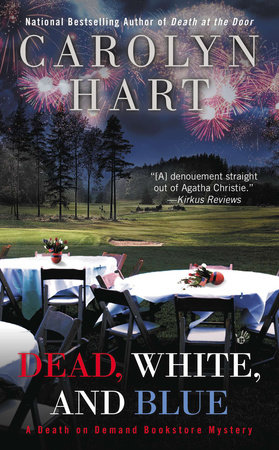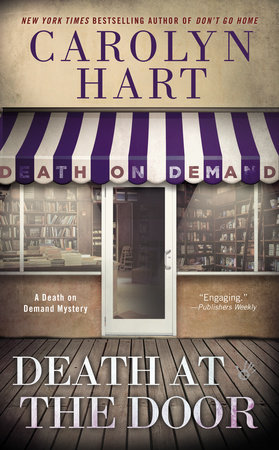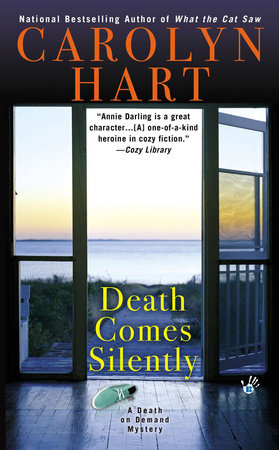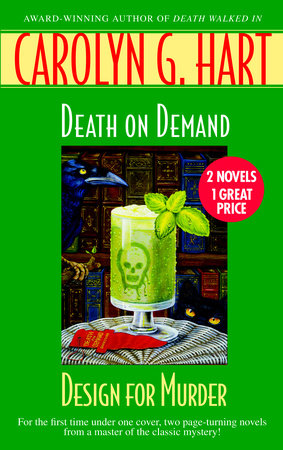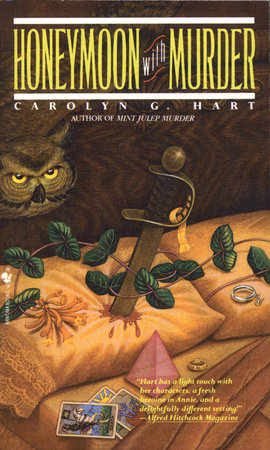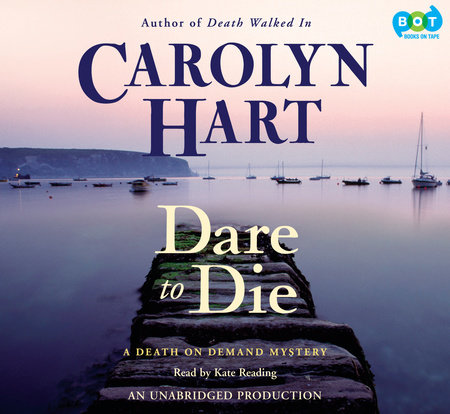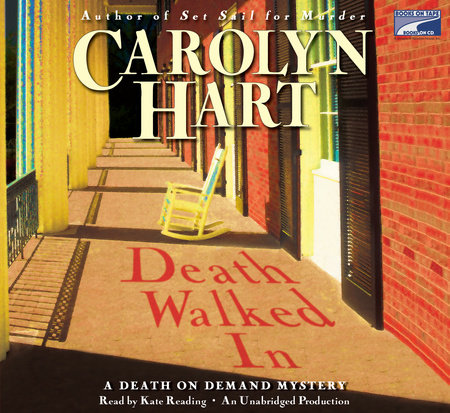Excerpt
Death on Demand
1
Alone, each item was insignificant. Some were easily found. A few were stolen from friends or acquaintances, but their value was so slight that the losses occasioned mild puzzlement and nothing more.
A pair of doctor’s rubber gloves.
A spool of black extra-strong button-and-carpet thread.
A handful of assorted keys.
Clear fingernail polish.
Polish remover.
One dart.
There was just one more item, the most important one of all.
2
The big collie barked first, then the cockers chimed in shrilly, shifting nervously in their pens. The deep-throated woof of the German shepherd boomed against the plastered walls.
In the hallway, the figure bending near the keyhole of the third door stiffened.
Goddam those goddam dogs.
Sweat slid between skin and the tight sheath of the rubber gloves, making it hard to work the keys.
All the dogs barked now, even the sleepy, ancient dachshund.
The fourth key worked. The lock clicked and the door swung open. Once inside, the figure shut the door, then switched on the flashlight. The bright beam danced over the immaculate linoleum floor, bounced up to the worktable, then to the rows of wooden cabinets. These, too, were locked.
It took patience. The dogs continued to bark, and the frantic yelps rebounded from the walls and tore at the senses. When the fifth cabinet door was open, a gloved hand reached up to pull out the third drawer. There were two small plastic vials in that drawer. The labels read Succostrin.
Jill Kearney always drove too fast, with the windows down. She loved the feel of the cool October night air against her face. She’d always liked nighttime. Nothing looked quite the same after dark, not even this road, a road she knew so well she could drive it automatically. She hummed softly. What a wonderful job she had, even if everyone thought she was crazy to love it. Usually, she didn’t have to go back to the hospital after her ten o’clock check, but that big Doberman had to be turned every three hours after his surgery to prevent pneumonia.
The road dipped just before her turnoff. The lights from the Honda skimmed across an automobile parked deep in the shadow of a live oak. Odd place to park. Must have had car trouble. The Honda picked up speed, and she leaned into the curve. Because the road curved so sharply, the Honda’s lights flashed up into the sky, and the moving beam of light in the third window on the east side of the clinic was sharply distinct.
As the Honda squealed to a stop, Jill flicked off the motor and the headlights, staring at the now dark row of windows.
Something had disturbed the dogs. Even out here in the parking lot, the sound of their frantic barking rose and fell.
A light had moved behind one of the windows. She was sure of it.
She looked around the graveled parking lot. It was empty, of course. No one had any business at the Island Hills Veterinary Clinic at one o’clock in the morning. No one but she.
Perhaps she had imagined the light, but she wasn’t imagining the barking. She’d better check the rooms on the east side. Just to be sure. She picked up her ring of keys and slipped out of the car.
Opening the back door, she flipped on the hall lights. Except for the almost deafening rumble of barks, accented by the high-pitched yapping of the cockers, everything seemed just as usual: the hall floors glistened from their final swab of the day, the air smelled of disinfectant and dogs.
Jill hesitated, then pivoted and walked up the hallway, unlocking doors as she went.
She unlocked the third door, the door that led into the dispensary, pushed it open, and reached out to turn on the light.
Her hand never touched the switch. The side of her head exploded in an agony of pain.


